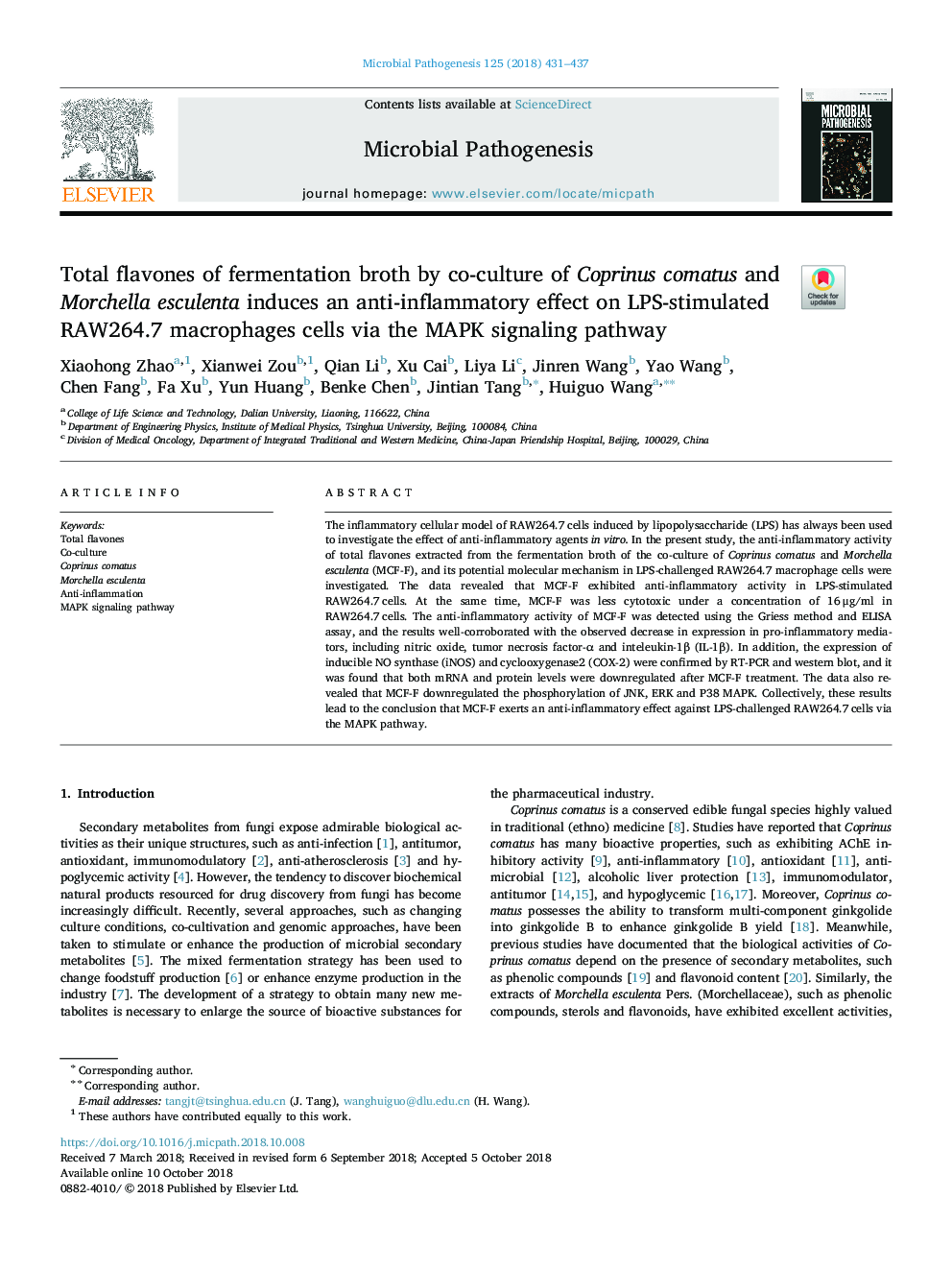| Article ID | Journal | Published Year | Pages | File Type |
|---|---|---|---|---|
| 11263716 | Microbial Pathogenesis | 2018 | 7 Pages |
Abstract
The inflammatory cellular model of RAW264.7â¯cells induced by lipopolysaccharide (LPS) has always been used to investigate the effect of anti-inflammatory agents in vitro. In the present study, the anti-inflammatory activity of total flavones extracted from the fermentation broth of the co-culture of Coprinus comatus and Morchella esculenta (MCF-F), and its potential molecular mechanism in LPS-challenged RAW264.7 macrophage cells were investigated. The data revealed that MCF-F exhibited anti-inflammatory activity in LPS-stimulated RAW264.7â¯cells. At the same time, MCF-F was less cytotoxic under a concentration of 16â¯Î¼g/ml in RAW264.7â¯cells. The anti-inflammatory activity of MCF-F was detected using the Griess method and ELISA assay, and the results well-corroborated with the observed decrease in expression in pro-inflammatory mediators, including nitric oxide, tumor necrosis factor-α and inteleukin-1β (IL-1β). In addition, the expression of inducible NO synthase (iNOS) and cyclooxygenase2 (COX-2) were confirmed by RT-PCR and western blot, and it was found that both mRNA and protein levels were downregulated after MCF-F treatment. The data also revealed that MCF-F downregulated the phosphorylation of JNK, ERK and P38 MAPK. Collectively, these results lead to the conclusion that MCF-F exerts an anti-inflammatory effect against LPS-challenged RAW264.7â¯cells via the MAPK pathway.
Related Topics
Life Sciences
Immunology and Microbiology
Microbiology
Authors
Xiaohong Zhao, Xianwei Zou, Qian Li, Xu Cai, Liya Li, Jinren Wang, Yao Wang, Chen Fang, Fa Xu, Yun Huang, Benke Chen, Jintian Tang, Huiguo Wang,
